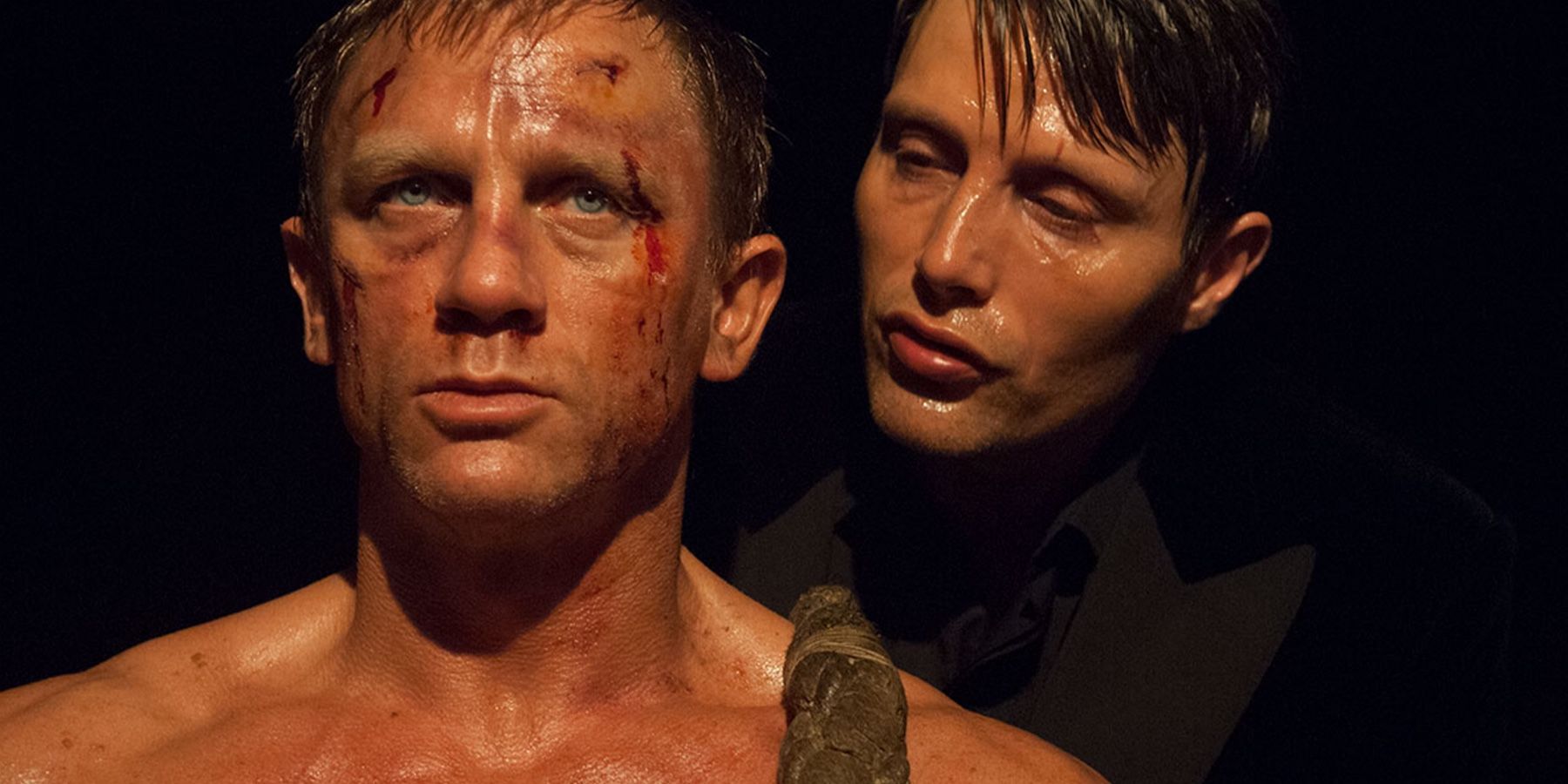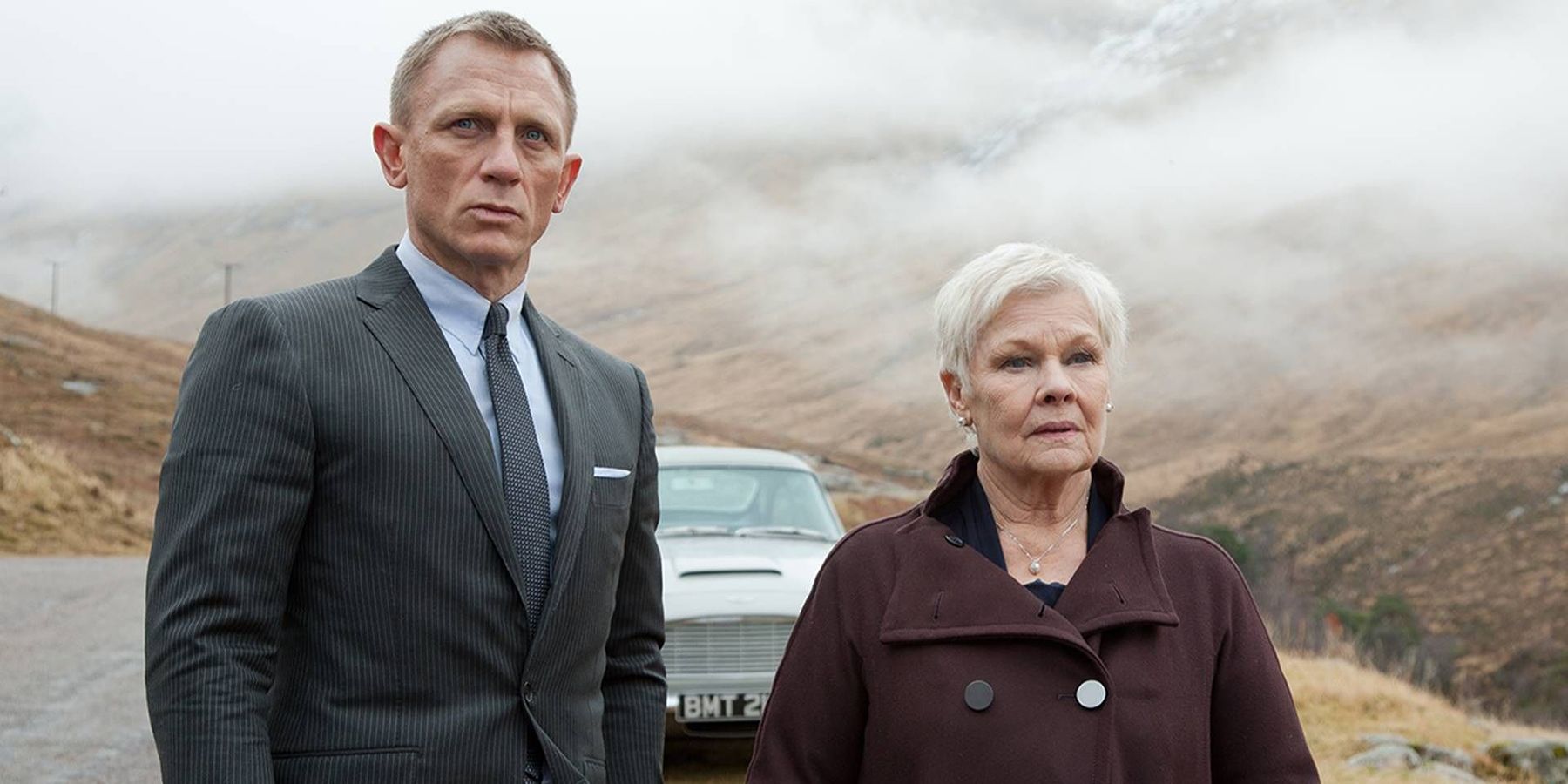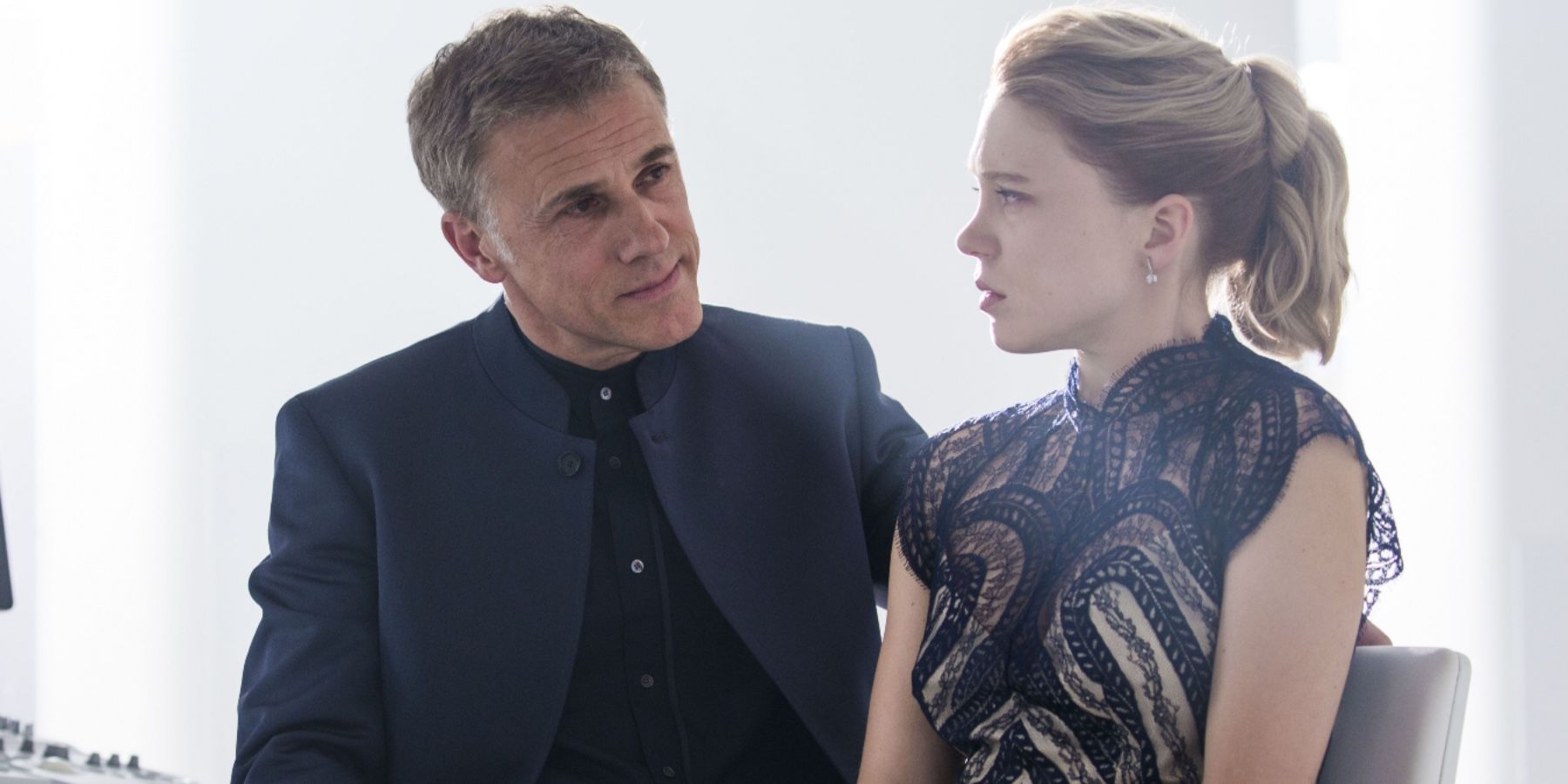For 15 years, Daniel Craig has taken on the role of James Bond with grace, vulnerability, and toughness. While he has class like Sean Connery and Pierce Brosnan's previous portrayals of 007, what made Craig particularly special as the secret agent is how personal and rugged his missions were, as well as his relationships (Vesper in Casino Royale, M in his first three films, his brother Blofeld in Spectre, etc.).
James Bond originated on film in 1962 with Dr. No nearly sixty years ago, with the late great Sir Sean Connery donning the iconic role that would make him and his predecessors superstars. 007 is so iconic because his stories are all about the deadly missions, the fancy wardrobes, the cool vehicles and gadgets, the evil villains who aim for global domination, and the beautiful women (good and bad) surrounding him. While Daniel Craig's Bond films included all of those necessary ingredients, what made his portrayal special was his personal touch. By depicting Bond at the beginning of his career, his mistakes and imperfections are explored, unlike previous films which mostly made Bond seem more like an invincible agent.
RELATED: Here's What Critics Say About Daniel Craig's No Time To Die
Casino Royale, Craig's first feature as Bond, was in fact Ian Fleming's first novel about 007. In this film, fans see Bond's strength, wit, and intelligence as a new agent. His egocentric behavior and arrogance are also on display, especially when plans don't go his way, like when he mistakenly bets all his chips and loses a pivotal game of poker to villain Le Chiffre (portrayed by the chilling Mads Mikkelsen). Bond is also ruthless when it comes to his job as an assassin, taking down bad guys without hesitation.

Judi Dench's portrayal of M, which was well-established in Brosnan's films, goes even further with Craig because, while she grows to trust Bond and his methods in getting the job done, she shares her concerns with him when she knows he's not fully ready to complete a mission, and wouldn't hesitate to have him killed if he failed her in any way. M is also very critical of Bond when he goes overboard in the killing department, telling him in Quantum of Solace that he is so driven by rage and vengeance that he doesn't care who he hurts, or the people who get killed because of his actions.
M's firmness toward Bond causes him to take his job seriously, and he slowly learns that killing the bad guys isn't his only duty. In Casino Royale and Quantum of Solace, Bond takes down a lot of ruthless bad guys and terrorists, operating more like an assassin, while in Skyfall and Spectre, he is more adamant about keeping bad men alive in order to interrogate them and retrieve important information. However, either way, the villains never make it easy for Bond.
The villains in Craig's films test Bond both physically and mentally, and aren't all about taking over the world. Le Chiffre in Casino Royale tortures Bond with a big whip in order to retrieve the money 007 won in their final poker match. In Skyfall, Javier Bardem's Raoul Silva, one of the craziest Bond villains in recent memory, menacingly tries to prove to both Bond and M that he's always been the best agent, and that he is capable of attacking any agent or organization.
Skyfall was really a crucial turning point for Bond because, after being accidentally shot by Moneypenny early on during a mission to retrieve an important list containing names of undercover agents, Bond contemplates whether or not he can return to the field after that near-death experience. Bond (as well as Silva and MI6) recognizes that he is older and wounded, and suffers from childhood trauma and alcoholism. M's position as head of MI6 is also in jeopardy due to agents getting killed, and the use of technology and surveillance being preferred rather than having agents work in the shadows.
However, Bond and M prove time and again that their characters always find a way to fight back and stand their ground. While technology has advanced, agents like Bond are still needed to carry out missions to protect, serve, and investigate for queen and country. Despite his struggles, Bond is shown doing training exercises and shooting practices, as well as speaking with a psychologist, who hints at the nature of 007's job and childhood (hence Skyfall where Bond grew up as an orphan after his parents died). These elements express Bond's darkness and vulnerability because, while he is strong and charismatic on the outside, his personal wounds hurt him on the inside, but when it comes to doing his job, he never fails because he is fully committed to saving the world.

Along with Judi Dench's vigorous performances as M, Craig's Bond has been surrounded by strong women, including Vesper Lynd (Eva Green in Casino Royale), who understands the type of man Bond is and falls in love with him because they both see each other together outside the dangerous life of espionage. While Vesper sadly betrays Bond due to her love for someone else, she loved him because of his determination and his humanity, especially when Bond comforted her after they nearly got killed by terrorists.
Camille Montes in Quantum of Solace was also a tough female character because, like Bond, she was seeking vengeance for the death of a loved one in their pursuit of Dominic Greene, an evil businessman primarily interested in controlling Bolivia's water supply and selling it at very high rates. Camille and Bond share one kiss, but don't fall in love because they each have their own path, and are still emotionally coping with their personal losses.
Madeleine Swann, daughter of recurring Bond villain Mr. White, appears to be a damsel in distress (which she partly is at the end of Spectre), but is also a woman who knows more than she seems. She initially wants nothing to do with Bond because of her father's sinful acts and hides the fact that she can use a gun because she hates firearms. She also knows about Spectre, the evil organization that financed terrorist acts committed by all the previous Bond villains in Craig's films. The mastermind behind Spectre is the always enigmatic villain Ernst Stavro Blofeld, who (in a more personal characterization without the bald head) reveals himself as Bond's foster brother, and also killed his own father because he became jealous that his dad loved Bond more than him.
Madeleine, like Vesper, is a woman who Bond views as an escape from his career on the field, and she even tells him that he has a choice: quit his job or continue being alone and fighting in the shadows. Throughout these films, Craig's Bond is the best agent, but whenever he finds a loving woman, he would resign from his job. This signifies that, while he eventually always returns to being agent 007, the job does take a toll on him, and he needs to settle down from time to time.

Daniel Craig's portrayal of 007, including his female relationships and the villains he takes on, have a more personal impact on the characters than in previous entries, making this Bond one of the greatest ever depicted on film. While fans have enjoyed other modern action heroes like Ethan Hunt, Jason Bourne, John Wick, and even Christopher Nolan's reboot of Batman in The Dark Knight trilogy, James Bond is recognized as more than an action hero: he's a cultural icon with complex dimensions. He's an assassin, a lady's man, a tough secret agent, an orphan, and a vulnerable human being with intimate emotions. No Time to Die will surely mark the end of an era for one of the best actors to shake and not stir.
MORE: Daniel Craig Offers Heartfelt Thanks To Crew On His Last Day Of Playing Bond

